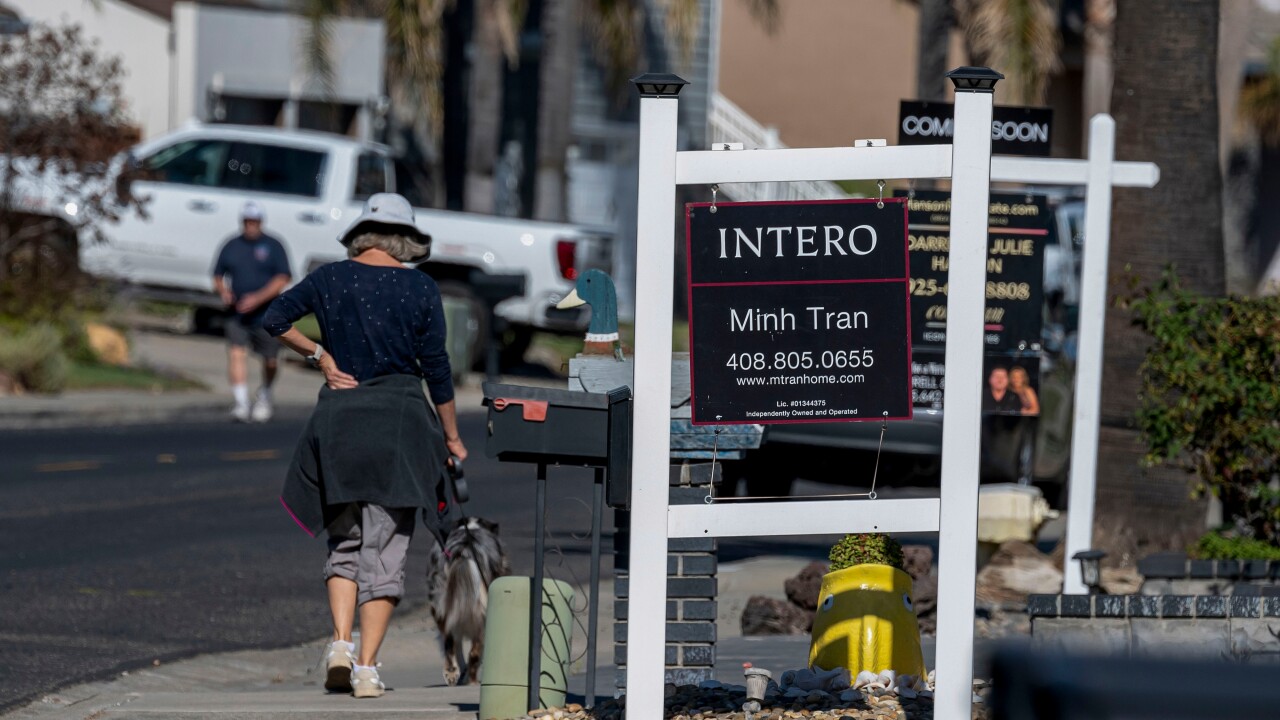Interest rates fell in August to the lowest level recorded all year for millennials, which could mean expanded buying power for this segment, according to data from Ellie Mae.
Ellie Mae said in its monthly Millennial Tracker report Wednesday that interest rates dipped to 3.763% in August amid talk of a Federal Reserve rate hike.
While lower interest rates for the overall population would signal a shift toward refinances, for millennials — many of whom are first-time homebuyers — it increases their buying power, according to Joe Tyrrell, Ellie Mae executive vice president of corporate strategy. Ellie Mae reported that the average loan amount to millennial borrowers rose to $181,326 from July's average of $180,413.
"Millennials are really taking advantage of the lower interest rates in terms of buying power," Tyrrell said in a phone interview. He added that there has been a gap between the general population and millennials in terms of loan amount, with millennials taking out much smaller loans than other homebuyers.
"That gap is starting to close," he said, noting that lower rates could also push millennials to "move into homeownership before family formation."
Looking ahead, Tyrrell was not worried about a possible rate hike courtesy of the Federal Reserve's Federal Open Market Committee.
"I'm not convinced it will significantly impact them," Tyrrell said. "What it's going to affect is how much home they can buy."
Ellie Mae also reported the average debt-to-income ratio increased to 24/36, and the loan-to-value increased to 88 in August. The average FICO credit score held steady at 725.
Additionally, the share of conventional loans made to millennials increased to 63% from 62% a month earlier. FHA loans made up 35% of all closed loans, same as in July.
In terms of where they are borrowing the most, Owensboro, Ky., remained the top metropolitan statistical area for millennial borrowers, as they made up 60% of all loans. In terms of the nation's largest metropolitan areas, St. Louis and Philadelphia topped the list with 34% and 32% of their loans, respectively, going to millennials.





